Introduction
Let’s be honest, tipping is one of those awkward social rituals that has the power to turn even the most confident traveller into a sweaty mess fumbling through their wallet, or if you anything like me, more of a clueless stand-off.
But don’t worry. If you are campervanning through Iceland and wondering whether you need to tip your waiter, barista (admittedly, I’ve only witnessed this in films), bartender, tour guide, or bus driver, I’ve got you covered.
This is your no-nonsense guide to tipping in Iceland. I cover where it’s appreciated, where it’s not, and how to navigate it all without accidentally insulting someone or leaving behind half your travel budget in small coins (spolier: you don’t need cash for really anywhere in Iceland – Apple/Google pay is all you need – or a bank card, of course).
Understanding Iceland’s Tipping Culture

Do You Tip in Iceland?
In short: not really, but let me explain exactly why.
Tipping just isn’t part of everyday life in Iceland the way it is in places like the United States or Canada, or even my home country, the UK. There’s no secretly whispered bill or unwritten rule of the bill percentage at a restaurant or even the appreciation for a great guide – it’s just culturally very different.
Most Icelanders working in hospitality are considered to be paid a fair living wage. That means tips aren’t needed to top up their income, and you’re not expected to pull out your wallet after every coffee, cocktail, or cab ride. It’s meant to ensure workers receive a fair wage without being reliant on tips to make ends meet.
That said, if you do leave a little extra for exceptional service, it won’t be seen as strange or unwelcome. A few extra coins or rounding up your bill is always a kind gesture and may even get you a big smile in return, but it’s very much to be socially read on an ad-hoc basis.
But, don’t stress it because there’s no judgment if you don’t. Tipping isn’t part of the social contract here. You can relax, enjoy your trip, and leave your tipping anxiety at home – use the space to pack an extra pair of underwear is my tip.
Service Charges vs Gratuity
Service charges in Iceland are built into the cost of your meal, drink, hotel room, or tour. In simplicity, this means the final price already includes what might elsewhere be considered a gratuity.
There’s no line at the bottom of your receipt prompting you to add a tip, and you’re unlikely to find a server lingering awkwardly with the card machine, silently willing you to punch in a percentage, or worse still having to do a questionnaire on the machine as they silently judge you.
Instead, the Icelandic approach is refreshingly direct. The price you see is the price you pay. There’s no need to play the guessing game of whether or not a service fee was included. And if you want to leave something extra, it’s entirely up to you.
For instance, if you really enjoyed the tour and your guide went the extra mile to give you a great experience and you happen to have some Icelandic cash (most likely accidentally), then you can always offer politely and see what they say. Just don’t insist.
While tipping is not required, you might occasionally choose to round up your bill or leave a small thank you for exceptional service.
This could be at a high-end restaurant, after an unforgettable guided tour, or when someone does something genuinely helpful or thoughtful, like rescuing your flip-flop from a Strokkur geyser (don’t ask Ed Sheeran about that) or helping you find that one specific chocolate bar you swear was in your backpack.
While it’s never expected and certainly not part of any local protocol, tipping in Iceland is seen as a kind gesture rather than a standard rule. So if you feel moved to offer a little extra in appreciation, go ahead and do it. But rest easy knowing nobody is waiting on it.
How to Tip in Iceland
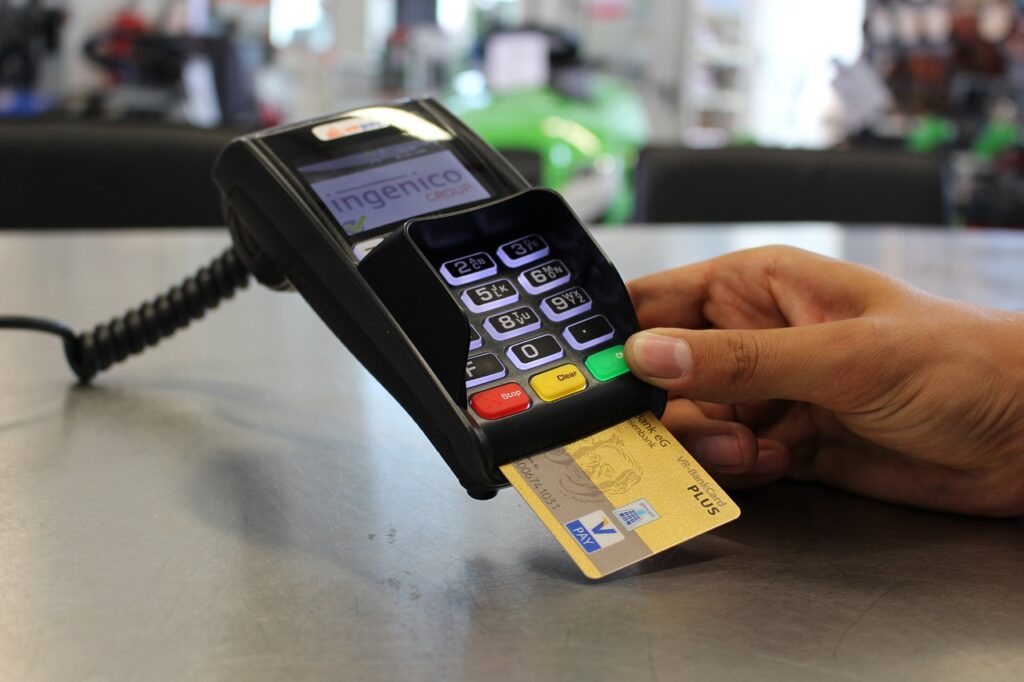
Tipping in Iceland is refreshingly straightforward. There is no need for the mental gymnastics often required elsewhere, and no percentage of the total bill convention. If you want to offer a little extra for great service, go for it. If not, nobody is going to give you side-eye (sorry fro repeating this so often in this guide, but it’s essential that you digest this point).
That said, if you do tip, how you do it matters more than whether you do it at all. It’s not about tossing wads of cash or fumbling through coins with sweaty palms. It’s about showing appreciation in a way that makes sense and won’t leave someone wondering what to do with your leftover euros/dollars/pounds other than storing for their next trip themselves.
Cash, Card, or Payment Terminal?
If you’re paying by card, some terminals will give you the option to add a tip, but many won’t – if you find the one that does, say hi to Jón for us! (joking!) Don’t worry if the machine doesn’t offer it, this is normal and no reflection on the service.
If you prefer to tip in cash, you can leave it on the table after your meal or hand it directly to the person who served you. There’s no special envelope or ceremony required (unless you’d like to start a new trend).
Small change is absolutely fine. Rounding up your bill to the nearest 500 or 1000 ISK is a common gesture for great service and is always appreciated, though never expected.
Always Tip in Icelandic Krona (ISK)
If you do decide to tip, always tip in Icelandic Krona.
That’s the local currency, and it’s what local workers can easily use on a daily basis, whether it’s picking up their morning coffee, grabbing lunch on the go, or doing the weekly shop.
Tipping in other currencies might seem generous, but it can be more of a hassle than a help. Foreign coins aren’t easy to exchange and might end up rattling around in a jar rather than being put to use.
Stick with ISK, and your gesture will be both practical and appreciated.
Why Does Iceland Not Have a Tipping Culture?
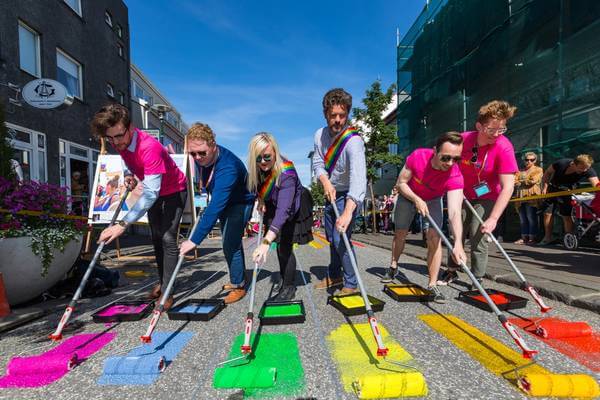
The short answer? Fair wages, cultural norms, and a healthy dose of common sense.
Iceland is one of the few places where fair pay is the norm, not a marketing slogan. Workers in the service industry are compensated with proper wages that don’t rely on tips to bridge the gap. This means your waiter or hotel receptionist isn’t hoping for your spare change to make rent. It’s progressively seen as a benchmark to ensure society is a little fairer in Iceland.
Tipping doesn’t prop up the system here. Instead, it complements a work culture that values equality, self-respect, and the idea that great service should be a given, not an extra.
The whole approach fits neatly into the Icelandic mindset: do your job well, take pride in it, and don’t expect applause (or extra cash’o’la) for meeting the standard.
So while tipping is not frowned upon, it’s simply not needed. You won’t insult anyone by not tipping, and you’ll never be made to feel like a villain for paying the bill and walking away with the exact change.
Dining Etiquette in Iceland
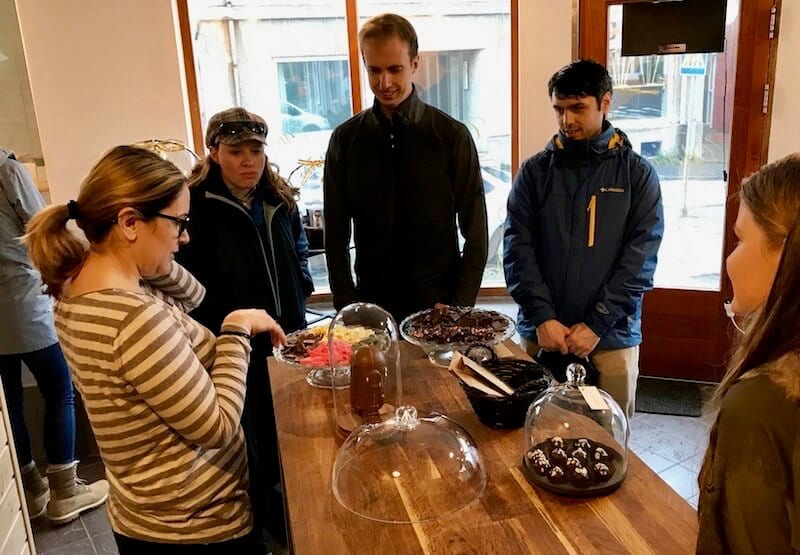
Dining in Iceland is refreshingly laid-back, but there are still a few unspoken customs that are worth knowing. Icelanders value politeness and modesty, so while service staff may not hover or engage in a lot of small talk, they are still professional and attentive – you’ll find at many places you are expected to go to your server than the other way around, unless more up-market.
In most cafés and restaurants, you seat yourself unless instructed otherwise. Don’t expect anyone to hover by the door with a seating chart and headset. This is not a New York brunch spot or London excel spreadsheet level of organisation, it’s a lot more chilled (As a general rule: less people, less pace). Menus tend to be straightforward, often with local and seasonal ingredients taking the spotlight, and you are rarely rushed through your meal.
When your food arrives, a simple ‘takk’ (thanks) to your waiter or waitress is always appreciated. If you are particularly pleased with your experience, feel free to let them know. While tipping isn’t expected, kindness and good manners go a long way.
Often you’ll find the service staff are very young in comparison to the UK or US, in particular. From my view, it’s often their limited job experience which can at first feel a little like you’re being ignored, in reality they just need a prod (not literally!)
And yes, it’s perfectly acceptable to linger a while after your meal, especially if you’re soaking in the views or catching up over coffee. Just remember Icelandic dining is more about enjoyment than speed (a good way of viewing your entire trip). Take your time, enjoy your food, and don’t stress about social rules that don’t exist here.
Tipping in Restaurants & Cafés
No one expects you to tip at restaurants or cafés in Iceland, and that includes everything from high-end dining to quick stops for coffee and a slice of cake.
If your server delivers top-notch service with a smile and you feel like showing some appreciation, rounding up the bill or leaving a friendly thank-you note is a thoughtful gesture, but to repeat there is no social convention for this. I have also only ever seen tourists tip, so you cen rest easy knowing the locals will almost certainly not tip.
At more casual spots like outdoor food vendorss, or food halls (for some reason Icelanders loves these) tipping might cause more confusion than delight. These places operate with a friendly no-frills style, and the staff don’t expect any extras beyond a polite ‘takk’ (pronounce it like you have an ‘h’ stuck in your throat – ‘t-ahh-kk’). As you’ll almost certainly be speaking in English throughout ordering, the staff will take your attempt the language as gratitude enough!
Bars & Cocktail Lounges
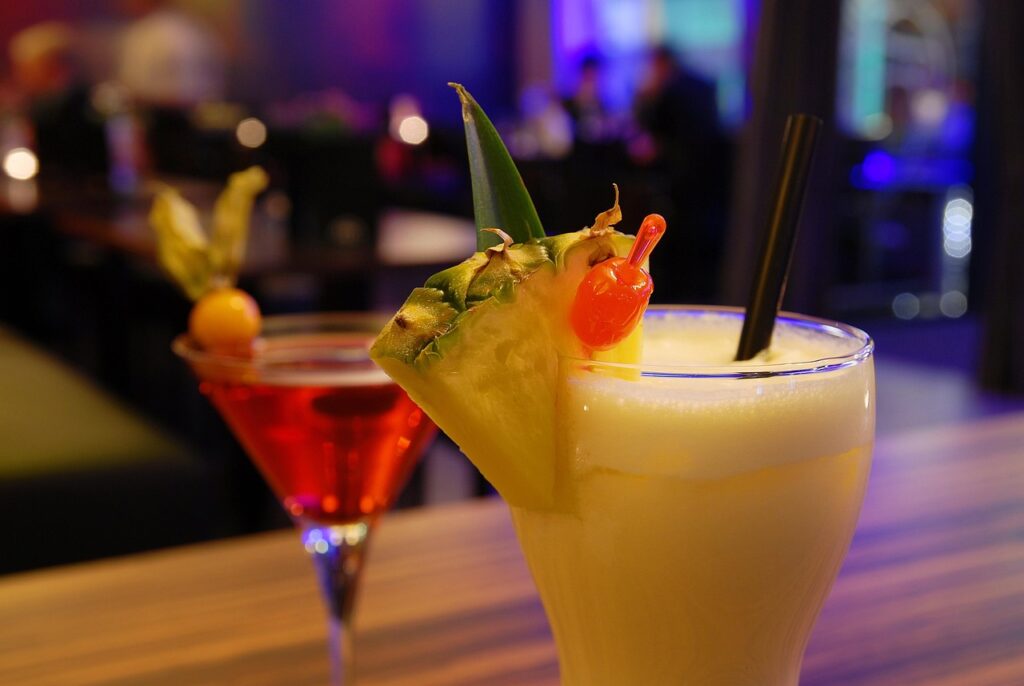
Again, tipping is not expected at bars – this is not an episode of How I Met your Mother.
Order your pint, pay the price listed, and enjoy your drink without worrying about adding anything extra.
Most bartenders are paid fairly (and if not, it will soon be in the local news), so there is no need to tip, whether you are ordering a cold lager at a rural pub or sipping cocktails in downtown Reykjavík from the views of Ský Bar.
That said, if your bartender crafts a particularly memorable drink or goes the extra mile to help you find that one Icelandic gin you fell in love with at the airport, feel free to round up or leave some small change (failing that, a solid high five or fist bump is a good way to go also).
They won’t expect it, but a kind gesture never hurts. Just don’t feel like you need to tip with every round – this isn’t New York….in fact, the whole population of the country is less than Manhattan.
Tipping in Hotels and Guesthouses
Staying in hotels or guesthouses in Iceland is a great way to wind down after a day of volcano hiking, waterfall-chasing, or just being blown sideways by the wind in the Highlands. When it comes to tipping, though, the rules here are as chilled as the glacier you probably saw that morning.
Tipping staff at hotels and guesthouses is certainly not expected. Iceland’s hospitality workers are paid decent wages, and there is no cultural norm around leaving a tip for standard service. That means no envelopes on the desk, no awkward eye contact at checkout, and no guilt trips if you don’t drop a few notes on the bedside table.
That said, if someone goes the extra mile, like arranging a surprise birthday cake, helping you dry your soaking hiking boots, or digging out the perfect fjord view from a book of secret local spots, then leaving a small tip may be welcome, but almost always just some basic gratitude and a kickass review is more than enough.
If you’re wondering who might appreciate a tip, I’ve broken it down below to make things easier.
Housekeeping & Room Attendants
Unlike some countries where tipping housekeeping is customary, in Iceland it is not part of the culture and rarely practiced.
That said, if your room looked particularly spotless, or you feel someone went the extra mile, such as folding your towel into a swan or found your lost sock hiding behind the radiator, then a small thank you left in the room will be taken as a kind and unexpected gesture. Or you can let the hotel staff know on the way out that they hired a legend.
It is not something cleaners rely on or look for, but it will likely make someone’s day with some basic appreciation (I once left some flowers that I couldn’t take with me….I assume they liked it, unless they thought it was to freshen up the room!)
Valets & Luggage Porters
You probably won’t encounter many valets or porters unless you’re staying at one of Iceland’s few luxury hotels like the Edition which, unless you’re celebrating a honeymoon or accidentally booked the presidential suite, isn’t most people.
If you do find yourself at one of these higher-end spots, a small tip for help with bags or parking is totally fine. Something like a few hundred ISK handed over with a smile is more than enough. They will likely find it a little odd, but will graciously accept knowing it’s more you sharing your thanks and your culture.
But don’t worry if it slips your mind, a genuine thank you and a nod of appreciation go just as far.
General Reception Staff
Reception staff in Iceland are not tipped.
Their job is to assist you throughout your stay, whether that’s giving hiking suggestions, helping you book a tour, or kindly printing out your boarding pass at the last minute.
They often go the extra mile as part of their role and do it without expecting anything in return.
If you do want to show appreciation, a warm thank you, a genuine smile, or a nice message in the guestbook or online review goes a long way. I’m almost certain that a glowing online review will be met with a warm e-hug.
It’s not about cash, it’s about kindness.
Other Situations Where Tipping Is Appreciated (Not Expected)
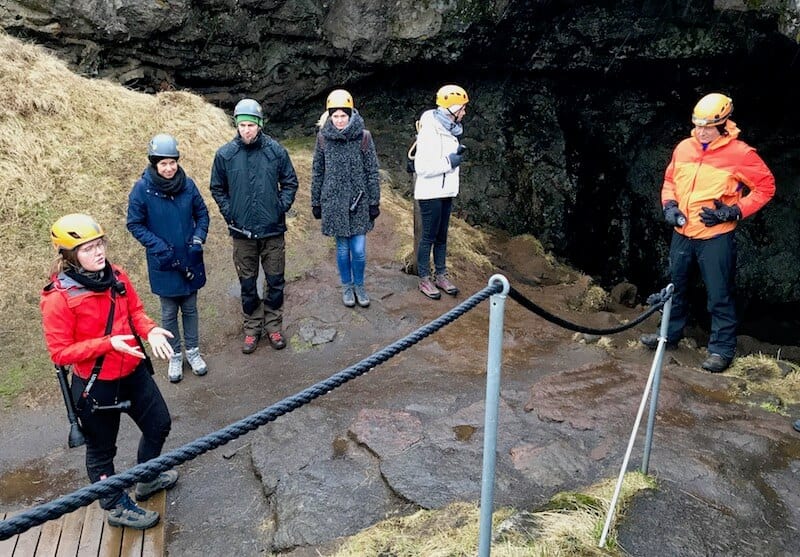
While Iceland isn’t a country where tips are expected, there are a few moments when showing appreciation with a little extra can feel right, especially when someone’s gone above and beyond the call of duty.
Think of those off-the-script travel moments. Maybe a local driver helped you navigate a road closure during a snowstorm. Or a helpful tour guide shared a hidden hot spring that wasn’t on the itinerary but instantly became the highlight of your trip because the proposal actually was secluded. These are the times when a tip, while never asked for, can be a meaningful gesture and better understood by the local.
This section highlights a few of these special scenarios where you might consider tipping, not because anyone is waiting for it, but because it’s a nice way to say thanks.
Just keep it simple, sincere, and in Icelandic Krona, and always remember that kindness, not currency, leaves the biggest impression – and if you’d like to tip for the help of this travel guide, my bank details are the following (joke!)
Tipping Taxi Drivers in Iceland
Taxi drivers in Iceland do not expect a tip and certainly won’t sit there silently judging you if you hop out without leaving extra.
That said, if you had a particularly pleasant ride, a last minute journey that ensured you made your flight, or a taxi driver who shared insider tips on the best geothermal pools, feel free to round up the fare to the nearest 500 or 1000 ISK.
Most Icelandic taxi drivers are friendly, professional, and paid a fair wage, so whether you tip or not, you’ll still be met with the same courteous service and likely a cheerful “takk” as you step out.
Tour Guides
Here’s the one place where tipping is slowly becoming more and more common – and honestly, it kinda makes sense.
Tour guides in Iceland often go far beyond rattling off a list of facts. They might be sharing personal stories, steering you through a storm, or turning what could have been a soggy walk through lava fields into one of the best days of your trip.
If you’re on a guided tour (especially a small group or private one) and your guide brings the landscape to life with humour, heart, and a bit of Björk trivia thrown in, then a tip is a great way to say thanks.
It’s still optional, but increasingly common.
Many people choose to give 1000–2000 ISK (around $7.50–$15) per person, depending on the length of the tour and just how unforgettable the experience was.
Think of it less like a duty and more like giving someone a high five with a couple of extra krona thrown in.
When to Skip Tipping

Unless someone truly goes above and beyond, like rescuing your lost drone from a waterfall or lending you dry socks in the middle of a downpour, there’s really no expectation to tip.
If you’re enjoying a self-guided campervan trip around Iceland, tipping probably won’t come up much at all.
Whether you’re grabbing a coffee, fuelling up at a petrol station, or chatting with campsite staff, these people are already earning a decent wage and won’t be expecting anything extra.
Instead, focus your energy on being a kind, considerate guest in the country, and sticking to the rules of etiquette laid out. Smile, say takk, and maybe leave that campsite just a little cleaner than you found it. That’s the kind of appreciation Icelanders actually notice – if you get them to say anything to show this, however, I’ll tip you myself!
Use Your Own Judgment
In Iceland, tipping is never expected. So take a deep breath, trust your instincts, and do what feels right in the moment.
Icelanders are big on straightforwardness, and no one’s going to judge you for not subscribing to some unspoken tipping rulebook. They’d rather you focus on enjoying the journey.
Conclusion
Tipping in Iceland is one of those rare joys of travel: simple and stress-free.
There’s no pressure to add 10 or 20 percent.
No awkward maths involved.
No need to wonder whether you’re offending someone by not tipping or overstepping by offering it.
In most cases, the best way to show your appreciation is with a smile, a sincere thank you (takk), and most definitely, a great online review.
And, if you really want to thank someone, maybe just recommend them to your fellow travellers.
That’s the Icelandic way.
Looking to explore Iceland without tipping stress? Start planning your trip with our team today – we’ve got some great tips for you (come on, what a pun to end on!)
Back